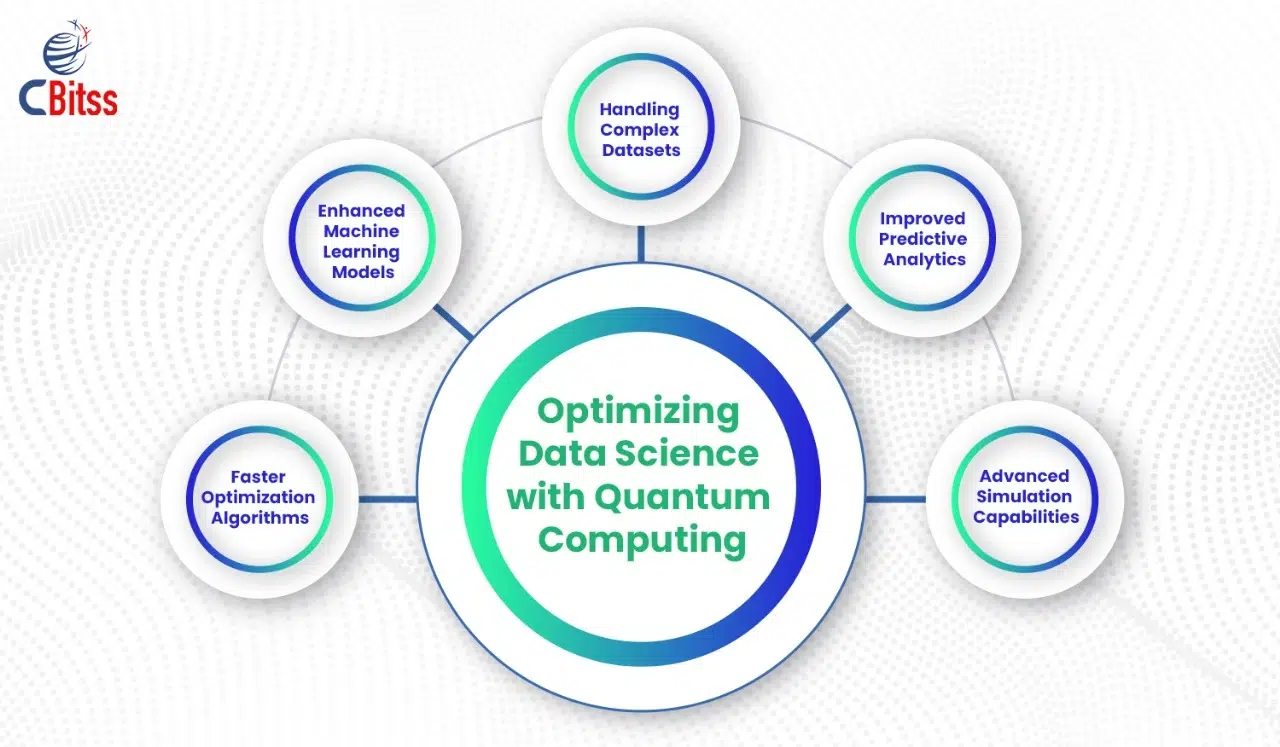Introduction
Quantum computing is poised to revolutionize data science by solving complex problems faster than conventional computing.
Unlike traditional computing, which uses binary data, quantum computing leverages quantum physics principles for advanced problem-solving.
This emerging technology promises to accelerate discoveries in data science by processing vast amounts of data more efficiently.
Data science course in Chandigarh can help you solve tough calculations within a short time. You will get to learn how quantum computing is the future of data science. Further how it can revolutionize areas such as artificial intelligence and optimization which makes it an essential technology.
Applications of Quantum Computing in Data Science
Through the use of quantum computing, data science is likely to receive a massive boost in how data is processed. They can complement predictive analysis, which make future predictions and accurate decisions possible.
New principles of quantum supplements machine learning algorithms to attain higher precision on pattern recognition and optimisation. In data security, quantum computing can enhance the encryption process of data so as to protect confidential details.
Also, quantum computing can analyse and recognize very large data sets. It can perform data mining, and identify the outliers. This is exceptionally difficult for traditional computer systems. By the same token, as the technology advances the options quantum has to offer to data science will expand. Thus offering numerous opportunities for developing further innovations and unique insights
Challenges in Quantum Computing
Quantum computing has a wide variety of applications, but this technology has several essential issues that prevent its further development.
- Among them, the most critical one is a hardware problem. Quantum computers need to control qubits – quantum bits – and these bits are prone to noise and other types of interference.
- Today’s quantum processors still have a problem of following which the error rate is very high.
- Scalability is another issue because as the number of qubits which is required for such applications rises the difficulty of sustaining coherence and reducing errors increases.
- Quantum error compensation is immensely important but is currently practiced at a very rudimentary level. This demands extensive resources to sustain the structural integrity of the quantum states.
Besides, the quantum computer programs and the choice of algorithms for executing them still remain a work in progress. There is a scarcity of quantum software engineers, as well as restricted access to the quantum hardware.
Speed and Efficiency in Data Processing
As it is with most business processes today, speed and efficiency are key determinants when processing big data.
First, there are ordinary computers that work with data step by step. In order to use various algorithms or solve large problems on such computers, a lot of time is required.
On the other hand, it provides a revolutionary solution. It is as they use quantum mechanics to straight calculate many operations concurrently. Hence the faster pacing. Indeed, quantum computers can input a task with big sets of data, search for a variety of solutions simultaneously in quantum parallelism, and save time for optimizing, learning, and simulating.
Tools and Platforms for Quantum Programming
Quantum programming is, therefore, done with specialized tools and platforms to create and solve quantum computation problems.
- Some of the top existing quantum programming languages are Qiskit, which was created by IBM. The users can design quantum circuits and Quantum Circuit Schematic. They can further execute these circuits on real quantum computers through IBM Quantum Platform.
- Another language that was developed for constructing realistic quantum circuits is Cirq developed by Google. It is popular for gate based quantum systems. Rigetti is a set of tools which help users to write, simulate and execute quantum programs using the Quil language and run them on Rigetti’s quantum cloud.

Preparing for the Quantum Future
Getting ready for the quantum future requires ensuring industries, businesses, and individuals, and the communities, respectively, with the skills, tools, and environment that would enable them to take advantage of the opportunities offered by quantum computing.
Organizations also need to establish quantum readiness. Some through the adoption of quantum computing as a service that is offered in the cloud. And some through exploring internal development of quantum programs. For businesses, preparing means knowing how quantum computing innovation could threaten company’s operations, from supply chain management to data protection.
Thus, Quantum computing can help data science explore new ideas that cannot handle or execute satisfactorily at acceptable speed. It will be possible to predict infrastructures’ growth, applying machine learning when relevant quantum technology emanates, and secure essential data. Nevertheless, the advancement of quantum computing should continue given the importance it poses to data science in the coming future.



